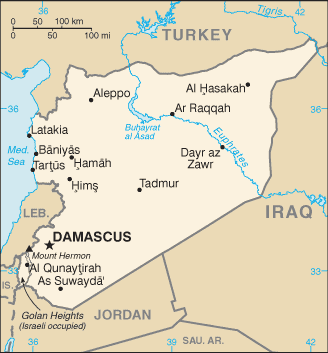Just a day after Russia had brokered a ceasefire which would lead to the evacuation of what is left of the rebels in Syria’s northern city of Aleppo, the rebels and government are back to fighting again, with no sign that the evacuation is going to happen any time soon.
 The military is described as controlling upwards of 99% of the city at this point, and airstrikes hit what is left of rebel territory, amid artillery fire from the rebel areas into the rest of the city. The UN warned that the new fighting may amount to a war crime, though honestly in Aleppo it’s just the latest of many crimes over the last half decade.
The military is described as controlling upwards of 99% of the city at this point, and airstrikes hit what is left of rebel territory, amid artillery fire from the rebel areas into the rest of the city. The UN warned that the new fighting may amount to a war crime, though honestly in Aleppo it’s just the latest of many crimes over the last half decade.
Exactly what happened to the Russia deal isn’t totally clear, but there are reports that one of the government’s allies tried to condition the rebel evacuation on allowing wounded civilians to evacuate from a pair of government villages besieged by the rebels and everyone flew into a rage after that was shot down.
As usual, both sides are blaming the other, with the government claiming the rebels started shelling first, killing six people, and they responded with the strikes, and the rebels, along with the Turkish government, claiming that Syria had obviously violated the deal first.
In reality neither side seemed all that invested in the ceasefire, which primarily happened because Western nations kept pestering Russia to “do something” and Russia finally coaxed everyone into the deal long after there was any chance the rebels might win, or even survive without such a deal.
Syrian President Bashar al-Assad was publicly critical of the deal in the first place, a rarity given his heavy reliance on Russia in the civil warr, saying the deal was designed to “keep the terrorists and save them” from the military’s offensive.
Such comments were likely a tactical mistake on Assad’s part,as the West is already more than willing to believe anything that goes wrong in Syria is his fault, and this supports the idea he might’ve sabotaged the ceasefire, despite the obvious risks of a falling out with Russia over the matter.


